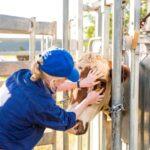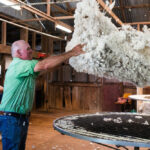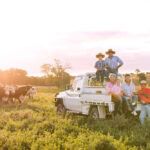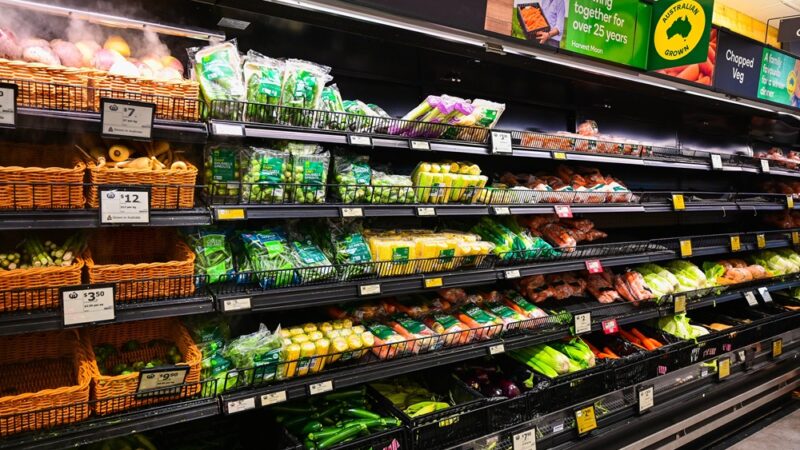Local Land Services offer a wide range of agricultural services, workshops and programs that can…
The Suttor family: custodians of the land
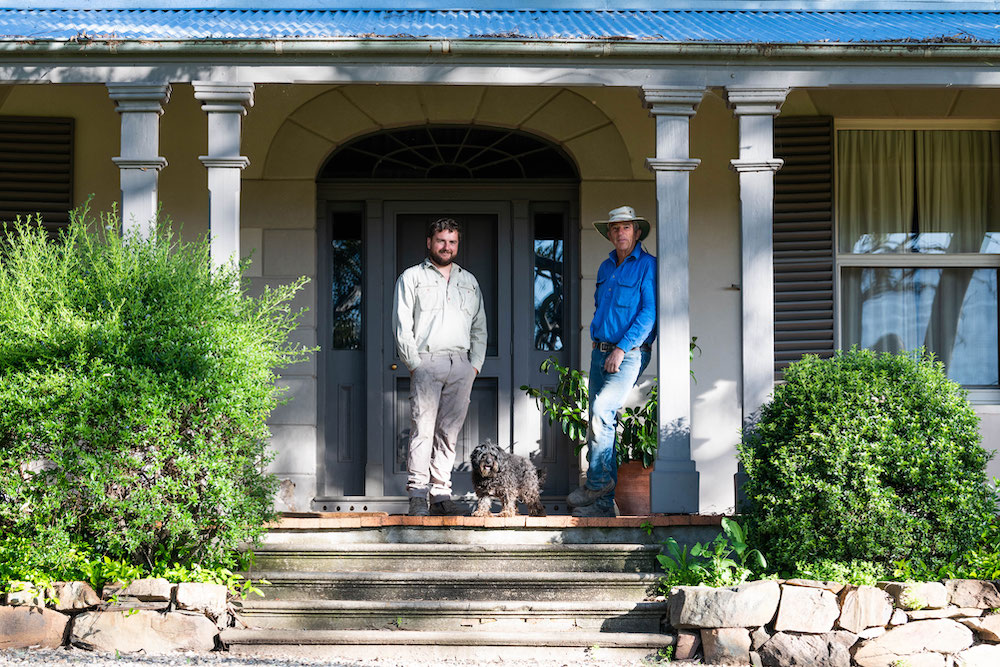
Most farmers consider themselves custodians of their land. For David Suttor though, the bond goes deeper than that, as he’s also custodian of his family’s history.
The Suttors’ story has been told in TV documentaries and books while local schools still come out to the sixth-generation farmer’s Bathurst property, Brucedale, to hear him recount it again.
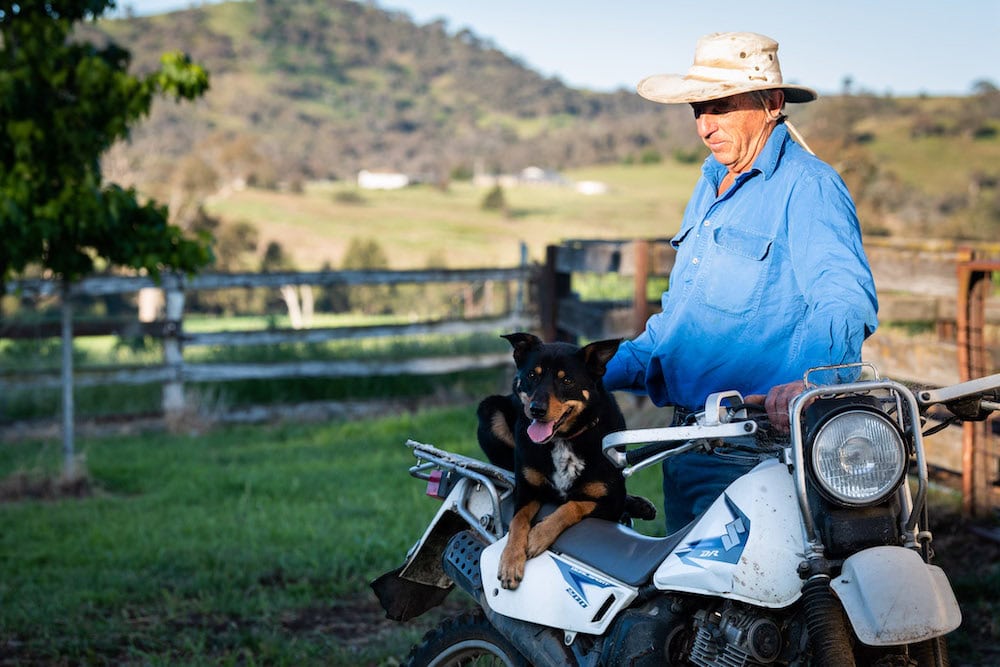
We spoke to David just after floods had swept through his property, destroying infrastructure ranging from his newest fences to the regenerated creek he’s been working on for years.
He was also worried about energy and grain prices and whether he’d be able to get his machinery out onto waterlogged fields. Despite this, David has not thought about selling up and turning his back on a history that began in 1800 after George Suttor was invited out to Australia by the famous English botanist Sir Joseph Banks – who wanted him to bring out plants to help establish the colony.
George had actually wanted to be an actor, says David, but his wife Sarah’s parents weren’t going to let their daughter marry a thespian.
“Instead, he came out as a horticulturalist farmer and developed the first commercial orange orchard in Australia at Baulkham Hills.”
In 1822, thinking he was about to lay claim to a 2,000-acre land grab, George and his son William, then 17, travelled over the mountains to Bathurst with 400 sheep, some bullocks, horses, and a dray with their supplies. In fact, the land ended up being only 320 acres.
“George left William in charge of the livestock in Bathurst until it could be sorted out, instructing him: ‘Treat all of the Aboriginal people with respect and kindness. If you do, you won’t have any trouble’.”
Without that advice, the Suttor family line might have ended right there.
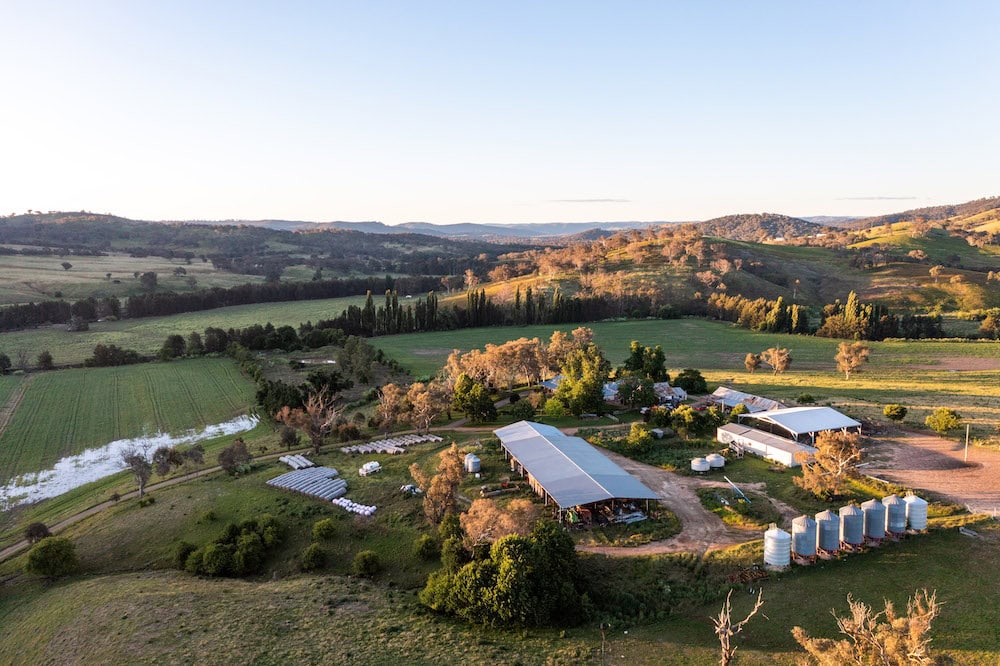
The local Wiradjuri people weren’t happy about all the new settlers taking their land and years of martial law and conflict followed.
William, however, was always kind, says David, and when a party of angry Wiradjuri, led by famous warrior Windradyne, turned up at his property intent on revenge for his slaughtered people, William was able to speak to them in their own language, diffusing a potentially fatal situation.
Windradyne, supported by the Suttors, went on to travel to Sydney to plead with the Governor to have martial law suspended and is now buried 1.5 km from David’s home.
The land is fenced off and recognised as a national park and he regularly sits with the warrior’s ancestors to speak
with school children.
“When you have these historic things on your farm, they need to be acknowledged. The Wiradjuri are welcome here at any time. It’s a positive, dual history we share, and we like to get it out into the public as much as we can. It’s a special, ongoing thing to be involved in and something we’re very proud of.”
David Suttor
The son of George
Kindly William, meanwhile, went on to become one of the biggest farmers out west. “It was the squatocracy period, you could lease 6,000 acres from the Crown for about 10 pounds a year. At one stage he had 600,000 acres under his control, all the way up to QLD.”
Not surprisingly, the government eventually realised it was not the fairest system and broke the runs up.
William continued to do well, however, out of the gold rush. He didn’t find gold himself – although his brother-in-law, Dr Kerr, laid claim to the famous Kerr Nugget, a 109-pound find of gold.
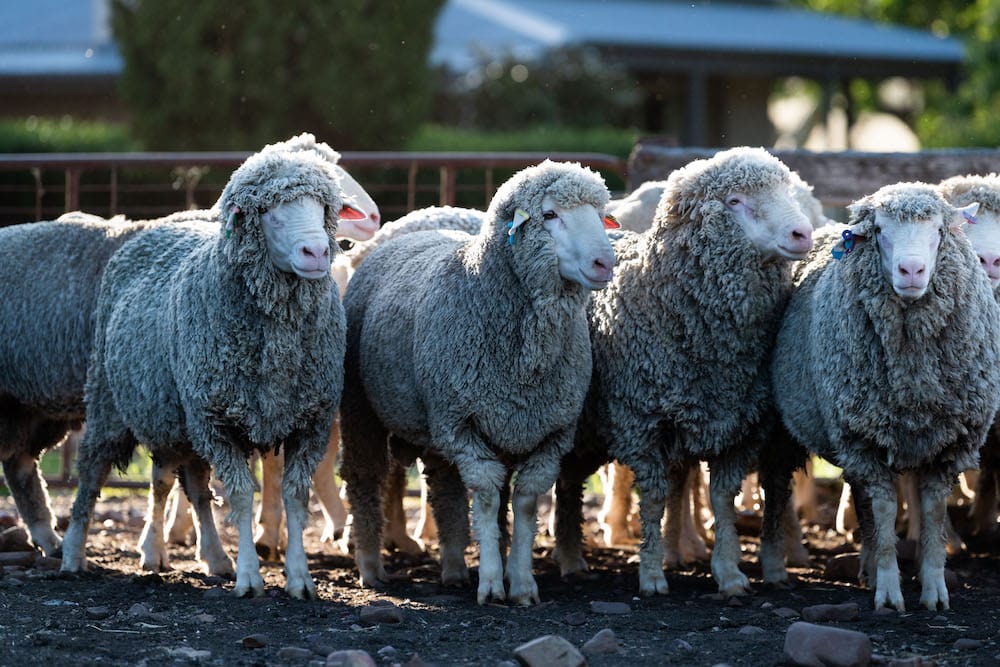
“It was actually found by one of his Aboriginal shepherds who sat down for lunch, turned over a big rock to make sure there was nothing under it and exclaimed: ‘That’s the yella stuff those white blokes are looking for’.
“He rolled the rock back and told Dr Kerr. They smashed it up and put it into saddlebags, stored it at Brucedale then took it into town to get it valued. In the 1850s it was worth more than $4 million in today’s money.
“I don’t know if Kerr shared the money. He gave the shepherd some sheep and tobacco but within a couple of days he’d been swindled and left with only his tobacco. That’s what happened in those days. The Aboriginal people had no idea of the value of gold. If a white man had found it, he probably would never have told Kerr.”
Bizarrely, it was the only bit of gold found in the area. “Others came to look but never found any more. It truly was amazing, especially as it was just lying on top of the ground with this quartz around it.”
William, instead, found his own riches, selling beef to the gold diggers in Ballarat and Bendigo. “They’d put a mob of 800 cattle together and walk them there.
“There was a shortage of beef and with the gold rush it was worth a lot of money – so many people and no refrigeration. Whatever was butchered had to be eaten.”
David recalls one particular incident when William was unable to get the cattle across the swollen Murray River so had to sell them on the NSW side for six pounds a head.
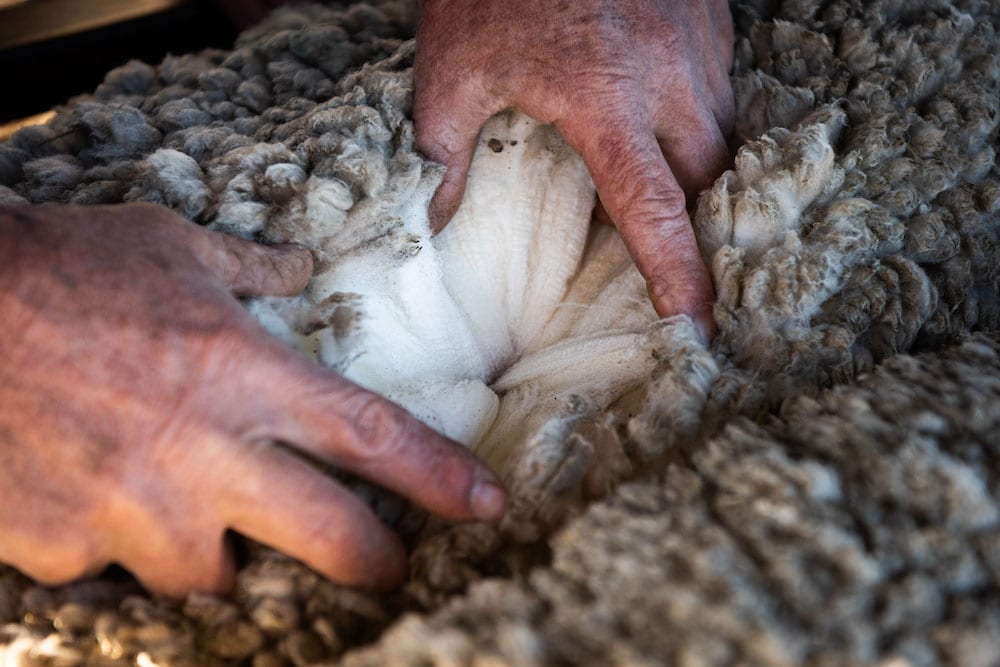
Realising patrons of the local pub knew how much he had stashed in his saddlebags, he then had to put a wad of his cash behind the bar and get the publican to promise not to let any of them know he was on his way before they’d drunk the lot.
Fortunately, he had himself well hidden on a rocky hill by the time the inebriated patrons galloped past.
The next generations
David’s great-great-grandfather, Herbert (William’s son) was more interested in sheep than cattle. “He won trophies for breeding Merinos, although we wouldn’t want those wrinkly Merinos today. No one’s got the labour to chase the flies out of those things.”
Like David today, Herbert also did a lot of off-farm work.
“There’s a bit about him being a sheep classer and we recently found a story about him classing sheep out west and breaking two records in one day – one for classing 10,000 ewes (obviously he wasn’t looking at them very closely) and the other for drinking everyone under the table!”
David Suttor
David’s grandfather Roy was next to take over, also dealing with the devastation of two World Wars and the Great Depression. His dad John then took the reins, swapping from sheep back to cattle again.
“Unfortunately, he ran into trouble in the 1982/83 drought. He couldn’t even send them away because Brucellosis was around then. When I came back in 1988, I put sheep back on the place producing wool and meat.
“I have recently bought some young heifers though and we’ve joined QLD cattle to a European breed, so we’ve got some cracking calves to sell next autumn and get back into cattle trading.”
Over the years, Brucedale has shrunk in size and David is now down to 1,100 hectares where he currently has nearly 3,000 sheep, 190 cattle and does a bit of cropping. He still lives in the original homestead, built for William and his wife Charlotte in 1837: “We’ve modified it with indoor bathrooms but it’s still the original Georgian house.”
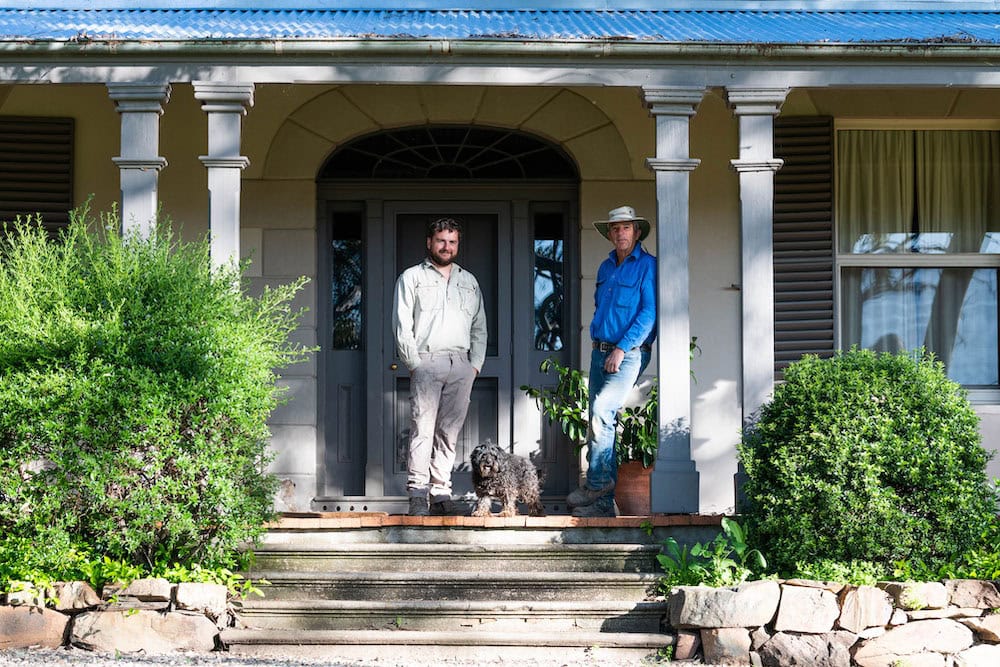
At present, the family is wrestling with the perennial farmers’ dilemma of succession. The farm can’t be reduced in size any more or it won’t be viable and there’s no way the Suttors would sell up and walk away.
His improbable dream scenario would be for the government to buy it and the family to rent it back.
It has, after all, become a special place for generations of Wiradjuri who still come to Brucedale to tend Windradyne’s grave and share the story of how whites and blacks found peace together.
“History could stay here and we could become the curators,” he says.
The succession dilemma
Will is David’s eldest son, and he has two siblings, Jock and Phoebe. “Growing up, I always knew I wanted to be a farmer,” he says. For now though, achieving his dream is a work in progress.
Currently, Will – who will be 32 in March – has his own roofing business in town with Jock working alongside him. “We’re both very interested and want to be involved in the farm and all three of us would love to see the farm continue,” he confirms. “We’re all on the same page there. It’s just getting it to a point where it works for all parties.”
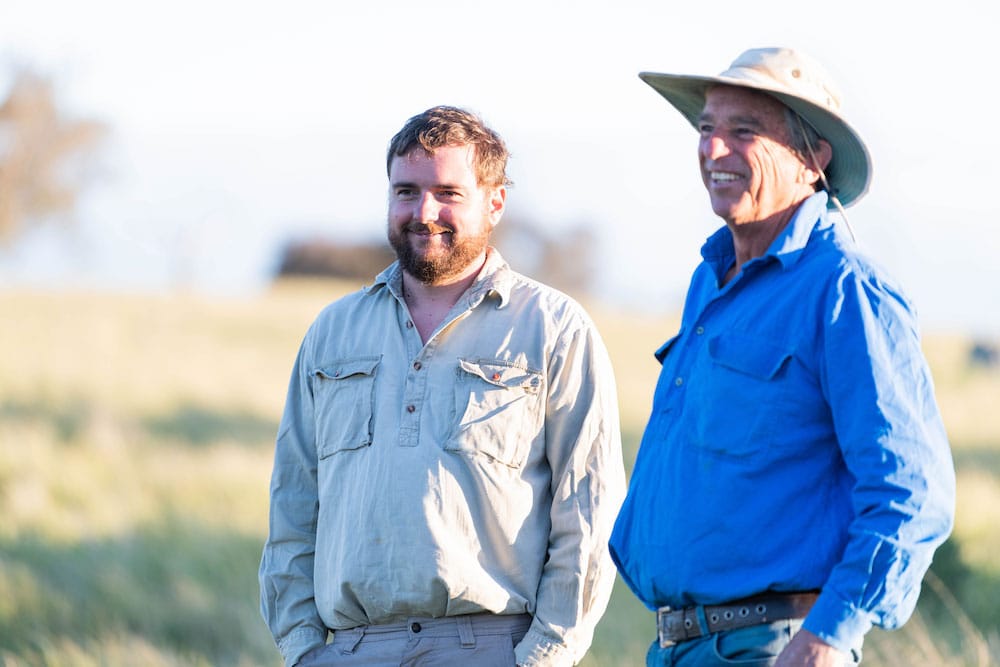
Succession plans have always been a headache for farmers. Recently though, it’s become harder than ever. Land and stock values are high which makes paying family members out or acquiring more land impossible and many have to continue off-farm work to make ends meet.
Will has grown up with stories of his incredible family and, while times were undoubtedly tough back then, he says enviously, “There were a lot of opportunities for an adventurous go-getter back then. They took those opportunities and went with it.”
Whatever happens to the farm, however, one thing is certain. Will and his siblings will continue working with the Wiradjuri people. “That section with Windradyne’s grave is fenced off and will always be preserved as history.”
If you enjoyed this story on the Suttor family, you may like to read our feature on the father and son team at Macka’s.


